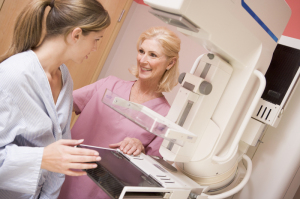by
Lauren Dubinsky, Senior Reporter | November 02, 2016

More needs to be done
to improve access
Most younger, uninsured women in North Carolina don't receive timely follow-up diagnostic exams after an abnormal mammogram, according to a new University of North Carolina Comprehensive Cancer Center study. The researchers called their findings "unfortunate" — but not unsurprising.
The Centers for Disease Control and Prevention (CDC) recommends that women with a positive screening mammogram receive follow-up within 60 days. Delays have been associated with larger tumor sizes and less chance of survival.
The team used data from the Carolina Mammography Registry to identify 43,026 women ages 40 years and older who had a positive mammogram between 1995 and 2010. They then determined the insurance status and age group of those who didn't receive follow-up.



Ad Statistics
Times Displayed: 59232
Times Visited: 1858 Ampronix, a Top Master Distributor for Sony Medical, provides Sales, Service & Exchanges for Sony Surgical Displays, Printers, & More. Rely on Us for Expert Support Tailored to Your Needs. Email info@ampronix.com or Call 949-273-8000 for Premier Pricing.
In the under-65 age group, 89 percent had private insurance, 3 percent were uninsured and the rest had a combination of Medicare and private insurance.
They found that uninsured women who were younger than 65 years were 59 percent more likely to miss the CDC guideline than privately insured women of the same age.
Furthermore, 18 percent of women under age 65 without insurance and 11 percent of women with private insurance didn't receive follow-up within 60 days.
"We found there are women who aren't getting follow-up after a positive screening mammogram, and we need to understand why, so that we can determine what to do about it," Louise Henderson, an assistant professor in the Department of Radiology at the University of North Carolina Chapel Hill, and senior author of the study, said in a statement.
The CDC provides resources to improve access to mammograms, but Henderson believes that more resources are needed. She added that women need to be told that an abnormal mammogram isn't necessarily an emergency, but that it needs to be addressed.

